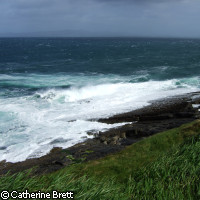Commission puts forward marine and maritime research strategy
The European Commission has set out its plans to strengthen links between the marine and maritime research communities. The Commission hopes its new European Strategy for Marine and Maritime Research will enhance the conservation of the fragile marine environment while facilitating the development of maritime activities such as shipping and fisheries. 'When it comes to major challenges such as reconciling maritime economic activities with the preservation of marine ecosystems, science and technology can play a major role,' stated EU Science and Research Commissioner Janez Potocnik. 'The Strategy for marine and maritime research should, therefore, be seen as one of the pioneer actions for the implementation of the European Research Area, which promotes scientific excellence and development of cutting-edge innovations in Europe through better integration of existing research efforts and development of new capacities.' 'This strategy is an essential pillar of the EU Maritime Policy,' added Joe Borg, the EU's Commissioner for Maritime Affairs and Fisheries. 'It is indispensable to allow us to realise the full potential of sea-based activities in an environmentally sustainable manner.' The strategy sets out two strands of action. The first is designed to enhance the links between the marine research community (which studies the complexities of the marine environment) and the maritime research community (which focuses more on the development of new techniques and technologies to exploit marine resources). This will be achieved through a number of actions. Promoting interdisciplinary research on cross-cutting issues, such as climate change, the impact of human activities on coastal environments and the exploitation of marine renewable energy resources, is given a high priority. There is also a strong emphasis on the development of new infrastructures such as ocean observatories or specialised research vessels. The strategy highlights the importance of combining different funding sources and linking up regional, national and European research initiatives and also underlines the importance of international cooperation in marine and maritime research. The second strand of action concerns governance. The Commission proposes that a Forum be established to set common research priorities and establish measures to implement the strategy. This forum will be made up of stakeholders from the marine and maritime research communities, governments, regions, industry and representatives from civil society. For its part, the Commission will act as a facilitator, overseeing the implementation of the strategy and providing support for its work through a range of funding mechanisms, including the Seventh Framework Programme (FP7). The strategy will be discussed by the European Parliament and the EU Member States. The Commission plans to work closely with the French Presidency of the EU over the coming months to ensure the rapid establishment of the governance mechanism outlined in the strategy. The Commission is expected to deliver its first implementation report on the strategy by 2012. The strategy is likely to be welcomed by the marine and maritime research communities; in June 2007, experts in marine and maritime science and policy issued the so-called 'Aberdeen Declaration'. This called on the Commission to initiate a European marine and maritime research strategy that addresses both environmental and economic concerns. The maritime sector represents an important part of the EU economy. Some 90% of external trade and 40% of internal trade is carried by sea, and industries as diverse as shipbuilding, fisheries and tourism in coastal regions all contribute billions of euros to the European economy. Meanwhile, emerging sectors such as offshore wind and tidal and wave power, as well as the blue biotechnology sector, are growing rapidly. Under the Sixth Framework Programme (FP6), which ran from 2002 to 2006, the EU allocated over €600 million to marine and maritime research projects. So far, some €120 million has been granted to similar projects under FP7.



